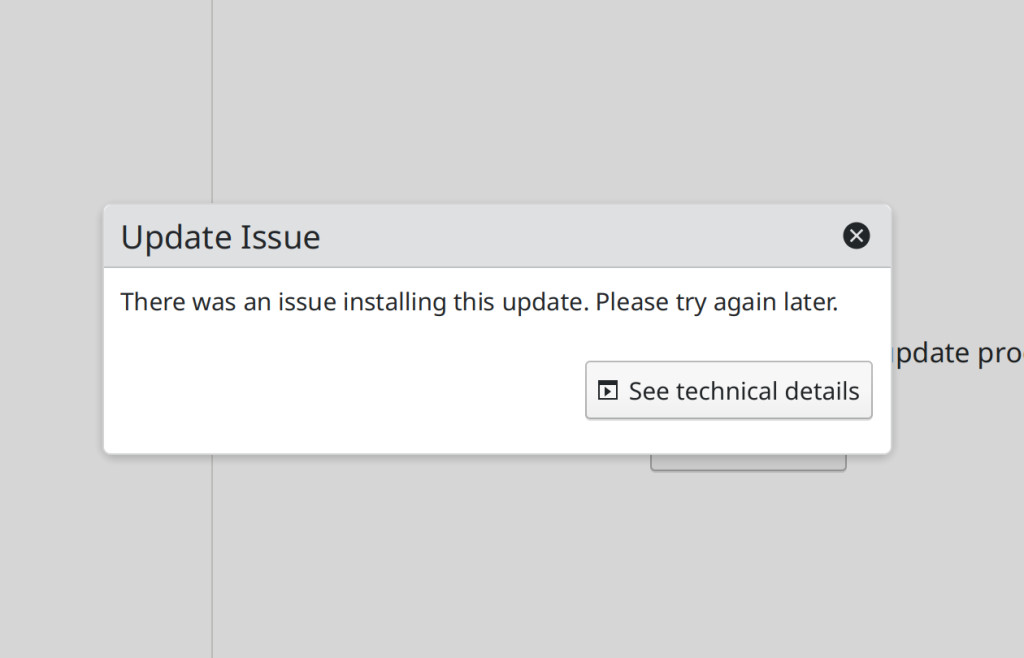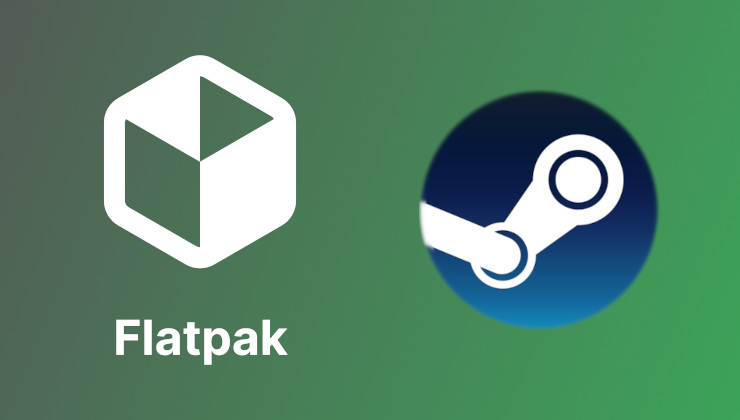I must say, I appreciate the attention to make things not only simpler but less breakable lately. First we had APT being patched to stop users removing essential packages, now the KDE Discover software manager gets a similar upgrade.
Developer Nate Graham has written up another great "This week in KDE" blog post, going over changes and improvements coming to the next release of Plasma and the various applications. One small change really caught my eye though! Discover now has a new way to ensure you keep a working system, with an updated mechanism to detect important packages getting removed and give you a friendly warning on it free of too much technical jargon.
Graham's comment underneath "Hopefully this is Linus-Sebastian-proof", heh. I hope many more application developers are looking at the way Discover and APT are evolving to ensure things are a bit more idiot-proof.
Another change to make things look a bit friendlier in Discover is that previously, if you had issues upgrading, it would instantly shove a load of technical details in your face. To normal consumers, that's clearly not going to do much to help and could probably scare them away. Now, instead, it will provide a very clear and friendly message, with the option to get more details to report the issue.
Plenty more upgrades to Plasma are in the works too, like the newer KWin Overview effect gaining the ability to display search results from KRunner, which brings it another step closer to the GNOME Activities Overview feature, which I did always find thoroughly useful.
There's plenty more fixes in the full post.
I choosed to not do so and i was aware that the learning curve wouldn't be easy. So it took time and love for the system to overcome what makes the system exactly not hand holding. Starting from distributions like suse -> damm yast does exactly what every beginner wants (configure your whole system) going down the road using mandrake / fedora / debian / gentoo and now arch ...
Now some people where able to break their system ... (aka format c: on windows ??? question -> did ever any microsoft engineer consider format c: to be insecure ???) and we are going to make it harder for everyone else ???
Lets be honest here , there are much better solutions out there which can cover a much wider group of mistakes which can be done by the user. In my eyes we should not stop user from doing incredible stupid things but rather enable them to always get to one step before they did something incredible stupid. Oh does this sound like snapshots to anyone else ? ....
Ok now i am quiet cause i know i will be called an elitist and someone who doesn't understand the problems of the users.
Sidenote: ubuntu did break with some packages the "official" hp driver on an lts version just in the last weeks. So much for stability and the idea of you can protect someone by don't allowing something ...
Last edited by Glog78 on 20 Nov 2021 at 6:31 pm UTC
Ah! And why is that?... Ponder on that one for a bit, and then come back to me and tell me again why we should pad Linux like how Windows and MacOS works. :)
Because it's not new user friendly.
That's your definition of me, not mine. I do not consider myself to be an elitist at all. I just realise that Linux is not for everyone. I'm even surprised that is a controversial opinion.This is a controversial opinion because it's the definition of gatekeeping, and it is time gatekeeping stopped happening.
The "white noise" between those VERY clear warnings were a listing of what exact packages we talk about. Information. Stuff you would not get on Windows, cause there it's just a generic popup with a red warning sign and a "something went wrong". No white noise... But is that how we want it? Really?!There is a huge leap between "wall of text" white noise like apt spat at Linus... and what Windows does.
My suggestion was to separate the warning with line breaks on either side of it and simply make the warning a different colour.
This is something that new users - ergo us all, every single one of us - has experienced on our Linux system during our first year for DECADES now. And then some celebrity (whom I have no idea who is but it seems the rest of you are on first name with) whines about it on youtube (or Twitch or wherever he's "influencing") and all of a sudden the entire Linux community jump like puppets.
Pathetic, is what it is.
So? And? What?
My dad had to walk to the corner store, buy a newspaper, go home and read it to get the news when he grew up. All I do is go on YouTube or whatever site you want to go on.
And yes, it's pathetic that it took a guy like Linus to discover a major problem with the way apt handles packages. This nonsense should have been fixed years ago.
I get it. You want your tough as nails, punishing, extremely hard to use operating system. That's YOUR idea of an OS. It doesn't mean others need to rub their face with a cheese grater every time they want to install packages.
And as I said, you can remove the protection if you want with a simple switch. Heck, you're the elitist. Get the apt source code, remove that function and compile apt yourself. These are choices available to you.
Linux is not longer a closed community. It's open to people like Linus. It's open to people like my dad (who barely knew how to turn on a computer, but used Linux Mint for 5 years). It's open to the teenager who just wants to play games. It's open to the accountant, and the [other profession].
Command line applications are traditionally for those with a little more experience, and there's absolutely nothing wrong with that. GNU/Linux is not Windows, should not try to be Windows, and should definitely not try to dumb down something that's been at its core (the ability to tinker).I agree in part. the CLI is not intended for newbies, but Linus was able to find a guide online and managed to bypass the protection offered to him by the gui, with only a single command and a verify command.
Adding protections doesn't make this dumbed down like Windows. It just adds protections.
I haven't said anything in a long time, but i am really "pissed" off what is currently happening. If i wanted a os which takes my hand and makes assumptions or decissions for me i would have stayed with windows or mac os ...There is an override switch.
It's not making assumptions or decisions for you. It simply has a protection to prevent removing system critical packages by accident.
No one is taking anything away from you. apt is simply being made more newbie friendly. You can still break your system as much as you want.
I'll be damned. I've been using Linux since RedHat 5.2, but today I learned I'm not a real Linux user.
... Is that what you got out of my comments? How? If you don't mind me asking?
And yeah, I raised my hand when you asked who hadn't bricked their system because they were fucking around under the hood. Another shared experience I don't share I guess. I'm a fraud.
You've been around since RedHat 5.2 and you've not screwed up your system even ONCE?! Wow! Again, not sure why you believe that makes you a "fraud", but I can't help bu thinking you're a rare breed :D
Hell, from what I recall I used my entire 2-3 first YEARS breaking my system. Tweaking like a madman, installing packages east and west, trying to force packages not compiled for my distro to work, digging and punching through config files and file property settings and thinking I got the hang of things.
Essentially doing everything I never experienced Windows giving me the opportunity to do.
I'm not saying the change itself is/isn't reasonable, but I'll have to disagree that the response wasn't knee-jerk. The time from news stories to the change was too short for any meaningful conversation to have taken place, and I can't actually find any record of one having taken place prior to the change being done. Which could be a search failure on my part, so if there is one do please let me know!
Maybe different wording? Different methods of displaying the information? Was the problem apt, or software running on top of it? Does this really address the problem? Who does it impact negatively? All kinds of questions that should've been considered before making a change that potentially impacts absolutely every distro (and by extension every person using them) built on apt - and the change (or changes, rather) don't document anything governing the rationale.
He specifically ran
sudo apt install steam
and then read the final line on the screen, and followed that instruction to type "do as I say".
I think if apt displayed that information in a clearly and more obvious form, Linus would have seen it and avoided uninstalling xorg by accident.
Someone deliberately wanting to break their system (Like Beamboom) or any clickbait youtubers? It won't change a thing. It might also not change a thing for people following guides, I don't know. I think pop's solution was a bit more obvious than debian's solution for this reason.I agree in part. the CLI is not intended for newbies, but Linus was able to find a guide online and managed to bypass the protection offered to him by the gui, with only a single command and a verify command.
Adding protections doesn't make this dumbed down like Windows. It just adds protections.
Actually this raises a good point: what does the apt change do that would have made anything different for a youtuber who wanted page views? Type this, then type that. It doesn't matter if it's one line or ten - he would have followed everything written. So the change to apt? Yeah, wouldn't have done anything in this case.
Also, the original error message from the gui was exactly stopping critical packages from being removed! The original gui error message was stopping the very thing that was then done explicitly from the command line.I completely agree with you on this point. I think Pop Shop could have been a bit more clear on what had happened, but it did offer some protection.
Unfortunately, it was far too easy for Linus to bypass the protection offered by Pop Shop without really knowing what he was doing - and this is a guy that's familiar with tech.
I haven't said anything in a long time, but i am really "pissed" off what is currently happening. If i wanted a os which takes my hand and makes assumptions or decissions for me i would have stayed with windows or mac os ...There is an override switch.
It's not making assumptions or decisions for you. It simply has a protection to prevent removing system critical packages by accident.
No one is taking anything away from you. apt is simply being made more newbie friendly. You can still break your system as much as you want.
More newbie friendly or for me another fucking option i need to remember and which because it should be newbie friendly won't be easy to find again (once in a blue moon when i am in charge of a debian based system) .... Specially ubuntu has been developed to a hell of a package management ...
You don't update snap -> oh the gui tool breaks because it tries to update snaps first. Oh after you got down and notice you need a new snap version you finally can now update the package ... synaptic using apt-get ... apt-get using apt .... which tool will give you now the option ? will they all be adapted or will because we are newbe friendly only that one hidden switch for apt (lowest level) be able to do what i want ? Also why did kde adapt something which clearly belongs into the hand of package management ? And does synaptic now do the same or whatever gui package manager you use ?
And how about rpm or pacman or or or ... Sorry you can't explain or make it sound reasonable to me that those changes are thought throu or will transfer over ... it's just a reaction because someone who should have known better and even didn't follow his own rules cried very loud .... Sorry if it should be newbie friendly -> installing steam wasn't possible in Pop OS with the gui tool -> Pop OS is not newbie friendly -> test done.
Sorry to be that kind of guy but i find it very strange on the one hand to always complain that a normal user shouldn't go to the command line and on the other side complain if the command line breaks something....
The command line and everything outside of officially provided packages (including protontricks / proton-ge and many more tools) are not newbie friendly and shouldn't be adviced to newbies if we want to be really newbie friendly.
Last edited by Glog78 on 20 Nov 2021 at 6:56 pm UTC
The Apt change at least lets you override things. I always thought there could be improvements to removal in general. Like say you install kde/plasma and then decide you don't want it anymore, and would rather run gnome/xfce/etc. Currently you have to remove the meta-package (kde-plasma-desktop usually) and then 'apt autoremove'. Should be like one step maybe? Then again it is rather complicated, as maybe you don't like KDE, but want Krita...Graham's comment underneath "Hopefully this is Linus-Sebastian-proof", heh. I hope many more application developers are looking at the way Discover and APT are evolving to ensure things are a bit more idiot-proof.
Don't know if it was intentional or not, but this tidbit here kind of blatantly equates "Linus Sebastian" to "idiot", heh :P
On topic, I think it's a good thing that Linux is slowly evolving to become a bit more suitable for the wider (read: technologically illiterate) masses of users out there; that's one of the major things it still needs to tackle as far as mainstream adoption is concerned. But I do have one question: what if I intentionally do want to remove a "system critical" package like Xorg or my DE - how do I do it if package managers, both GUI and CLI, prevent me from doing so? Is there (and if there isn't, could we pretty please have one, *hint* *hint* *wink* *wink*) a toggle somewhere that can be used to disable these fail-safes? I'm personally all for user-friendliness, but only as long as it isn't taken to the extreme of actually becoming an obstacle to a more tech-headed user's workflow.
The command line and everything outside of officially provided packages (including protontricks / proton-ge and many more tools) are not newbie friendly and shouldn't be adviced to newbies if we want to be really newbie friendly.This has actually been one of my biggest arguing points when talking to other Linux people. Stop recommending the command line to new users. If someone is inexperienced, can we PLEASE find a way to do it in the gui for them?
I think we'll have to agree to disagree on this point. Which is fine.On which part? That it was easy to bypass the pop shop? Or that he's familiar with tech?
If the latter, he has managed to drop virtually every hardware component in existence, if that counts...
The command line and everything outside of officially provided packages (including protontricks / proton-ge and many more tools) are not newbie friendly and shouldn't be adviced to newbies if we want to be really newbie friendly.This has actually been one of my biggest arguing points when talking to other Linux people. Stop recommending the command line to new users. If someone is inexperienced, can we PLEASE find a way to do it in the gui for them?
I think we'll have to agree to disagree on this point. Which is fine.On which part? That it was easy to bypass the pop shop? Or that he's familiar with tech?
If the latter, he has managed to drop virtually every hardware component in existence, if that counts...
They do exist, but noone test anymore suse or redhat and also we need to stop saying that everything runs. If you don't want to make your hands dirty , i can tell so many things which doesn't run out of the box in many typically gamer scenarios. But thats the same for windows. Ever tried to get some old games working on windows 10 or windows 11. The point is if a gamer gets their hand dirty with tools like dxwnd and the like on windows -> it's ok. If a user gets their hand dirty with the console it's not ok ? ... i have no answer besides the one i posted. Stop thinking of making the tools different , start thinking of giving the user a possibility to always get back to a working point.
I give an totally different scenario -> how many people at least once did a reset on their smartphone ? -> thats what we need (imho). Loosing the fear of breaking something in a way you can't recover. The tech is promised and out there since years -> btrfs / zfs ? copy on write and more. Let them get their hands dirty , let them do what they want to do but never let them run into a state when hours / days / weeks of work get lost. Or in other words finally implement modern backup methods into modern distributions (cloud saves for data if you want / snapshots for data / snapshots for systemprograms) .... and no flatpack / snap aren't a real answer in my eyes too and if it is only for the reason that their "security" features prevent them from easy use. A mac os or windows user don't understand containers and container based security and he don't want to understand why a program don't follow the theme he has set or why he needs a special driver version or or or ...
Last edited by Glog78 on 20 Nov 2021 at 7:21 pm UTC
The problem with GUI is that it changes much quicker over time. Windows 10 is a perfect example of this. Look up some solution on how to change a setting in Windows 10... good luck as if it's older than 6 months, than it's a good possibility that setting has been moved to some other area, so you have to keep looking.The command line and everything outside of officially provided packages (including protontricks / proton-ge and many more tools) are not newbie friendly and shouldn't be adviced to newbies if we want to be really newbie friendly.This has actually been one of my biggest arguing points when talking to other Linux people. Stop recommending the command line to new users. If someone is inexperienced, can we PLEASE find a way to do it in the gui for them?
I think we'll have to agree to disagree on this point. Which is fine.On which part? That it was easy to bypass the pop shop? Or that he's familiar with tech?
If the latter, he has managed to drop virtually every hardware component in existence, if that counts...
Command line on the other hand takes a LONG time to change, and usually it's additions of more options, the options themselves don't change.
What Linus experienced was the 'perfect storm' of installing Pop, not running apt update (which whatever post he was looking at SHOULD have told him to do) and then just ignoring the warning. If he'd upgraded pop first after an install, it likely would not have happened the way it did.
That's ONE advantage yum/dnf has over apt. It just has 'update' and it updates the cache and packages. Though there is a down side to that as it takes much longer to upgrade too. I kind of prefer the separate command, as you don't always need to update the package list (once per day is usually enough).
I haven't said anything in a long time, but i am really "pissed" off what is currently happening. If i wanted a os which takes my hand and makes assumptions or decissions for me i would have stayed with windows or mac os ...There is an override switch.
It's not making assumptions or decisions for you. It simply has a protection to prevent removing system critical packages by accident.
No one is taking anything away from you. apt is simply being made more newbie friendly. You can still break your system as much as you want.
More newbie friendly or for me another fucking option i need to remember and which because it should be newbie friendly won't be easy to find again (once in a blue moon when i am in charge of a debian based system) .... Specially ubuntu has been developed to a hell of a package management ...
You don't update snap -> oh the gui tool breaks because it tries to update snaps first. Oh after you got down and notice you need a new snap version you finally can now update the package ... synaptic using apt-get ... apt-get using apt .... which tool will give you now the option ? will they all be adapted or will because we are newbe friendly only that one hidden switch for apt (lowest level) be able to do what i want ? Also why did kde adapt something which clearly belongs into the hand of package management ? And does synaptic now do the same or whatever gui package manager you use ?
Perhaps you should refrain from posting again. Because this all sounds like ... well "unsubstantial ranting". First Snap. Since when do you update snaps by yourself? Granted you can, but by default they are updated autonomously and will never, ever conflict with your deb-packages (that's after all one of their selling points). Then you have synaptic (my favorite package manager) which does nothing else than provide a gui frontend for apt-*. And apt-get doesn't invoke apt, apt is just a "better apt-get". And yes it doesn't matter whether you use apt, apt-get, aptitude, synaptic or Gnome Software - they always use the same repos and they always install/uninstall or update the same packages.
Besides: Pretty much all distros nowadays prevent you from executing a
sudo rm -fr / May I ask why? Legend has it that it was introduced because too many "elitist" found it oh so funny to troll newbies with this command...
Displaying empty error messages is training people not to read these before closing the window and then searching some some arcane solution on the net.
Finding a solution for a windows problem usually involves reading a 2-5 page guide with pictures that does no necessarily help you because it either uses a different language or the last update changed the gui for reasons.
A linux guide usually boils down to a single command line and in case of unfamiliarity copy&pasting said line into the search engine of your choice.
That makes Linux clearly a winner in my book. both in time involved and user-friendliness.
A smarter move then all these changes would have been to change the default Linux install option on all distros to install the system on a separate partition from the /home directory so even in worst case scenario they can simply do a fresh reinstall of the system and are ready to go again in 15 minutes even if they did not make a system backup. And chances are they would have learned something in the process.
This is a controversial opinion because it's the definition of gatekeeping, and it is time gatekeeping stopped happening.Is it gatekeeping to say that not everyone should be placed behind the wheels of a Formel 1 car? Is it gatekeeping to say that some products require more of a user than others, or that they are meant for different segments of the market? Is it really gatekeeping to mean anything else other than that everything should be made for everyone and everyone should be able to use everything?
And yes, it's pathetic that it took a guy like Linus to discover a major problem with the way apt handles packages. This nonsense should have been fixed years ago.
The problem here was an error in the Steam package, presumably the control file/install script. There never was any problems with how APT handles packages. It just did as instructed, related to the dependencies specified in that control file.
What kind of script error should we be protected against next? There's plenty of shenanigan that could be done with a python script. Or if the user runs a shell script he copied from the web and didn't understand the content of. Of course as root, cause that's how he runs everything.
Do we want Linux to become MacOS? Cause this is essentially what Apple did with their Unix distro: Made it "fool proof" against pretty much any activity outside the designated and verified workflow.
I get it. You want your tough as nails, punishing, extremely hard to use operating system. That's YOUR idea of an OS.Come on man. This discussion is enough polarised as it is, without the need to project falsified opinions like that and argue against it.
Last edited by Beamboom on 20 Nov 2021 at 8:55 pm UTC
But I do have one question: what if I intentionally do want to remove a "system critical" package like Xorg or my DE - how do I do it if package managers, both GUI and CLI, prevent me from doing so?If you intentionally want to delete something, wouldn't you normally do it by, I dunno, using a "delete something" command of some sort, not by trying to trigger the deletion by installing a package? As far as I know, nobody's done anything to the stuff you do when you're trying to delete things.
i mean, 1 million of users reporting a bug? nah that is not important.
one big influencer reporting it? oh, shit! we need to do something about it!
ok, to be fair, there arent 1 million of bugs reports on the linus incident because many people got stuck without an gui and cant use their computer anymore to report the freaking bug.
before someone say something like "this is a different bug" i'm talking about this class of bugs, system breaking bugs.
and yes, uninstalling an system essential feature because you dont know what you are doing is an bug, or at least an ux design flaw.
Is it gatekeeping to say that not everyone should be placed behind the wheels of a Formel 1 car? Is it gatekeeping to say that some products require more of a user than others, or that they are meant for different segments of the market? Is it really gatekeeping to mean anything else other than that everything should be made for everyone and everyone should be able to use everything?This is a false comparison, and not one you can really make against much in this situation. We're not talking about a specialised field in any way - this is general purpose computing. Honestly, for those who don't like it - just stick to your terminal and be happy? Let the rest of us work on letting people enjoying Linux in general without something breaking ;)
These are the same people who say nobody should be using the command line unless they have some idea what they're doing . . . which I would normally figure at a minimum would involve having given the man page a once-over before starting to use a command, which would mean those approved-of people would be in a position to know they needed to add "--let-it-hose-my-system" or whatever to the command if they want to let it hose their system, so the change isn't really a barrier.
These are also the same people who say Linus was an idiot to type "Do what I say" in the first place. So they're saying that the new fix isn't going to stop anyone, who isn't the kind of idiot they don't want using Linux, from doing anything, ever. And yet it's terrible.
Really, WTF?! This is incredibly silly, even if you're going to be a "Linux should only be for techies who want to learn by breakage" gatekeeper. There is no use case where a Linux techie learning how to use the system should have as their objective to make their system become headless by trying to install a wrongly packaged package. If you want to delete the GUI or some other important part of the system, there are various ways to do it and that isn't one of them. This isn't a case where you've got a command some people will want to use to do a certain kind of thing and it is now harder for them, this is literally a thing nobody should ever do and it is now harder for them, and this is a problem because . . . a good operating system should have a nice supply of gotchas, so the users get hair on their chests? What?!
Last edited by Purple Library Guy on 20 Nov 2021 at 9:39 pm UTC
This is a false comparison, and not one you can really make against much in this situation. We're not talking about a specialised field in any way - this is general purpose computing.Actually, when I did the comparison between Linux and Formel 1 I for the first time in this discussion actually DID feel elitish... That was a horribly cocky, snobbish comparison :D
I should perhaps rather compare it with cameras? For a lot of people the camera on their smart phone is the best option and fully cover their use case. Some should rather go for the possibilities offered by pocket cameras. And absolutely not everyone needs or should use a system camera.
All three can produce great images. Still they are not equal.
Some things require a different skill level than others by the very nature of what it is.
And thus we are full circle now, because I honestly - and without wanting to leave anyone out like a bouncer but rather the consequence of a more realistic perspective on what Linux IS:
I seriously do not believe Linux is for everyone. It doesn't belong to the mainstream on the same level as MacOS and Windows.
There's too much chaos in the Linux world. Wonderful chaos. Just the very existence of the ridiculous amount of distros, a majority of whom there's no objective need for. That is one hell of a confusing nightmare to greet a newbie with right there.
Then you got the modular design. "Linux" is not one thing, as we all know. The system varies not only between the distros, but also depending on how the individual user has rigged their system.
Absolutely everything is accessible, configurable, replaceable, interchangeable.
All great stuff, but it requires something from the user.
Linux is the system camera of the OS world.
Last edited by Beamboom on 20 Nov 2021 at 9:57 pm UTC
Hands up, those of you who's never fucked up your Linux system, removed packages you shouldn't have, or screwed around in config files to the extent that you just had to reinstall the system?Apparently not all (Yay Nezchan!) but yeah, I've done some of that stuff. I started using Linux 20 years ago or more and I've had to wrestle with it, and I fancy myself not a stupid person so I was able to learn some of what I needed to do so.
... No? Nobody?
... We have ALL done that. Every single one of us. And we learnt from that! We GREW, that day. We became wiser, and better at reading and better at understanding, even RESPECTING the system.
But, and this may blow your mind, I hated it.
No, having to fix all kinds of crap and having that sometimes fail and even make things worse did not make me respect the system, it made me pissed off. I respect systems that work. No, it didn't make me grow, and it didn't make me wiser. Are you kidding me? Learning philosophy makes you wiser. Learning some technical details makes you know technical details. I want the hours back that I spent doing all that nonsense so I can use them to read fantasy books or learn more about political economy or history.
I started using Linux because I liked the concept of Free Software on a political level, because I hated Microsoft, and because despite all the hassles with Linux it was still usually less annoying than the hassles and impositions from Windows 95 and 98 and Xtra Proprietary. But I like systems that work and don't make me use the command line, and if there is a reason to use the command line I want that process also to be quick, and painless, and work.
Luckily, over the years Linux has gotten better and better for people like me. But Linux is open and full of choice. There is nothing stopping people like me from using Linux Mint or some other distro that pretty much Just Works. And there is nothing stopping people like you from using Linux From Scratch or Gentoo or something.
I'm not telling you you can't do it your way. So how about you stop telling me I'm not allowed to do it my way? Hmmmm?











 An idiots guide to setting up Minecraft on Steam Deck / SteamOS with controller support
An idiots guide to setting up Minecraft on Steam Deck / SteamOS with controller support How to install extra software, apps and games on SteamOS and Steam Deck
How to install extra software, apps and games on SteamOS and Steam Deck
See more from me